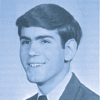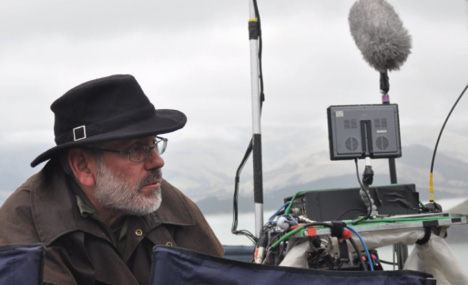Lawrence Stanley Mirkin – 50th Reunion Essay
Lawrence Stanley Mirkin
 178 Sherwood Ave.
178 Sherwood Ave.
Toronto, ON M4P2A8, Canada
Lawrence@mirkincreative.com
647-297-9710
Spouse(s): Stephanie Merrin (1983 to present)
Child(ren): Aaron Joseph Mirkin (1989)
Education: Yale College 1969 (of course); Yale School of Drama 1972
Career: Independent television producer/writer. Producer of more than 300 programs, including Fraggle Rock, The Jim Henson Hour, What’s Your News, Hi, Opie, and The Cat in the Hat Knows a Lot about That. Productions have appeared on PBS Kids, NBC, Sprout, Netflix, and HBO in the US; CBC, CTV, and TVO in Canada; and variously around the world, winning or nominated for many honors including the Emmy, the Gemini, the Ace, the Prix Jeunesse, the Youth Media Alliance Award, and the International Emmy.
Avocations: Interests include literature, the cinema, children’s development and relationship to media, great restaurants, the Toronto Blue Jays and cooking.
College: Silliman
When I arrived at Yale, only two things seemed certain: I was going to join the cross-country team and to major in mathematics since both activities were central to my identity. However, after three weeks on the cross-country team, I quit, totally bewildered that running no longer held meaning for me. I had invested a lot of my self-worth in running, but my gut was screaming at me, “This is not who you are anymore.” When I began my sophomore year, my certainty about a career in math had also disappeared. I realized that if you wanted to be a mathematician, you had to be a genius or you were going to be an actuary. I have nothing against actuaries, but I sure didn’t want to be one.
So much for certainty.
Because of our distribution requirements, I enrolled in a course called Tragedy, taught by Erich Segal—which started with Aeschylus and ended with Beckett. His first lecture was so full of passion and the clarity that these dramatic works could be alive and meaningful to our contemporary lives that I enrolled in his Comedy course (which started with Aristophanes and ended…with Beckett). I also devised a “plan” to switch my major to English, begin working at the Silliman Dramat (despite zero theatrical experience), go to drama school and run a repertory company. This decision had precious little to do with logic. It was an example of my instincts leading my brain (which was telling me the decision didn’t make sense) and, what I didn’t know at the time, leading my brain to a place that it could best do what it did as well. (The brain eventually catches up and is quite useful when it does.) I knew that I wanted a rich intellectual, emotional, and imaginative life so I could contribute meaningfully to society, and this early instinctive decision led me to a life in the arts, which was the avenue to that for me.
Those two early experiences where I let my instincts lead my mind began a pattern of learning to find a balance between the two in matters big and small my entire life. Here’s maybe the most significant one: John Hirsch, a fine director whom I met while I was the literary manager at the Mark Taper Forum in Los Angeles, liked how I worked on a script with him and asked me to join the Canadian Broadcasting Department to develop screenplays. I didn’t know anything about Canada and less about television, but I said yes. Why did I do that? He was a real artist and also a Holocaust survivor who said to me, “You know in this life, it’s impossible to avoid the miraculous.” That extraordinary line changed the entire direction of my life. It led me to a home in one of the great cities in the world, to my wonderful family, to Jim Henson with whom I worked for eight great years, and to a long career that still continues, making television programs that primarily serve children—and I believe my life would have been very different if I had not trusted my instincts.

Lawrence S. Mirkin
If the above is blank, no 50th reunion essay was submitted.
